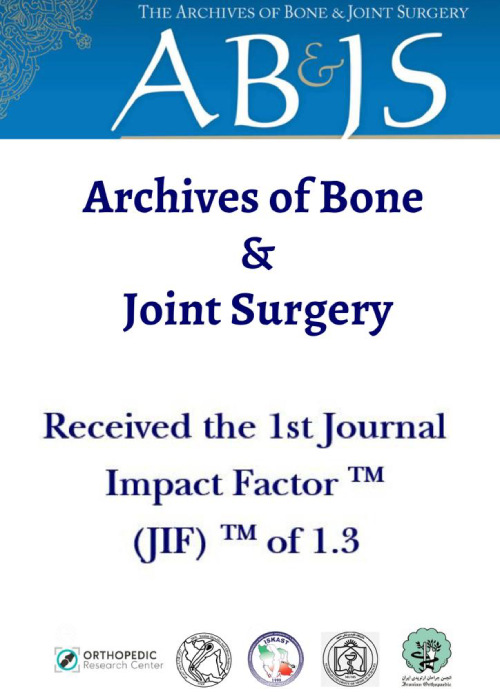How do Orthopedic Surgeons Address Psychological Aspects of Illness?
Author(s):
Abstract:
Background
Orthopaedic surgeons have a pivotal role in transitioning the care of orthopedic patients from a biomedical to a biopsychosocial model. In an effort to foster this transition, we designed a study aimed to determine surgeons attitudes and practice of noticing, screening, discussing psychological illness with patients, as well as making referrals to address psychosocial issues in patients in need. Additionally, we asked surgeons to rank order potential barriers to and reasons for referrals to psychosocial treatment.Methods
Orthopaedic surgeons members of the Science and Variation Group and Ankle Platform (N =350) completed demographics, and a 4-part survey assessing the degree to which surgeons notice, assess, screen and refer for psychological treatments, as well ranked ordered barriers to engaging in these processes.Results
As a group surgeons were neutral to referral for psychological treatment and formal screening of psychological factors, and somewhat likely to notice and discuss psychological factors. Surgeons were more likely to refer for psychological treatment if they engaged in research, or if they reside in South America as opposed to North America. The highest ranked barriers to screening, noticing, discussing and referring for psychological treatment were lack of time, stigma and feeling uncomfortable.Conclusion
Overall surgeons are likely to notice and discuss psychological factors, but less likely to formally screen or refer for psychological treatment. Transition to biopsychosocial models should focus on problem solving these barriers by teaching surgeons communication skills to increase comfort with discussing psychoemotional factors associated with orthopedic problems. The use of empathic communication can be very helpful in normalizing the difficulty of coping with an orthopedic condition, and may facilitate referral. Keywords:
Language:
English
Published:
Archives of Bone and Joint Surgery, Volume:5 Issue: 1, Jan 2017
Pages:
2 to 9
magiran.com/p1639308
دانلود و مطالعه متن این مقاله با یکی از روشهای زیر امکان پذیر است:
اشتراک شخصی
با عضویت و پرداخت آنلاین حق اشتراک یکساله به مبلغ 1,390,000ريال میتوانید 70 عنوان مطلب دانلود کنید!
اشتراک سازمانی
به کتابخانه دانشگاه یا محل کار خود پیشنهاد کنید تا اشتراک سازمانی این پایگاه را برای دسترسی نامحدود همه کاربران به متن مطالب تهیه نمایند!
توجه!
- حق عضویت دریافتی صرف حمایت از نشریات عضو و نگهداری، تکمیل و توسعه مگیران میشود.
- پرداخت حق اشتراک و دانلود مقالات اجازه بازنشر آن در سایر رسانههای چاپی و دیجیتال را به کاربر نمیدهد.
In order to view content subscription is required
Personal subscription
Subscribe magiran.com for 70 € euros via PayPal and download 70 articles during a year.
Organization subscription
Please contact us to subscribe your university or library for unlimited access!


